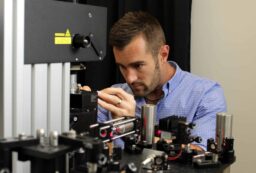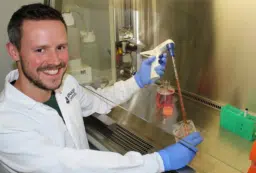Science meets new challenges to winemakers from climate change
Riesling grapes are struggling with premature ageing because of hotter conditions in parts of Germany and Australia where they have previously thrived.
“In recent years young Riesling wines have started to show a premature ‘aged’ character,” says Dr Yevgeniya Grebneva, a German scientist working for the Australian Wine Research Institute (AWRI) in Adelaide and the Hochschule Geisenheim University.
Although aged Riesling is a sought-after taste for many Riesling lovers, the majority of Riesling consumers prefer the grape’s youthful acidity.
“As Riesling ages, it develops a distinctive aroma of petrol,” says Dr Grebneva. “And while that may be highly appreciated by connoisseurs around the world, having these characteristics develop in young wines is a marketing nightmare.”
Dr Grebneva tackled the problem while completing her PhD at the AWRI where she studied the effect of changing vineyard light conditions on Riesling grapes and found a direct correlation between exposure to sunlight and the ageing characteristics.
“I applied different coloured shade cloth to bunches of Riesling grapes at different times during the growing cycle, changing the light reaching the grapes during ripening,” she says. “Eventually I was able to optimise the ageing potential of Riesling wine without negatively affecting its overall quality.”
She hopes her work will help arm grape growers with tools to face some of the viticultural obstacles that come with shifts in growing conditions due to climate change.
For consumers, it will preserve their choice of their favourite Riesling style – the light bright high acidity younger wines or the elegantly aged, distinctive bouquet of a wine that has not been forced to mature prematurely.





 Fresh Science is on hold for 2022. We will be back in 2023.
Fresh Science is on hold for 2022. We will be back in 2023.